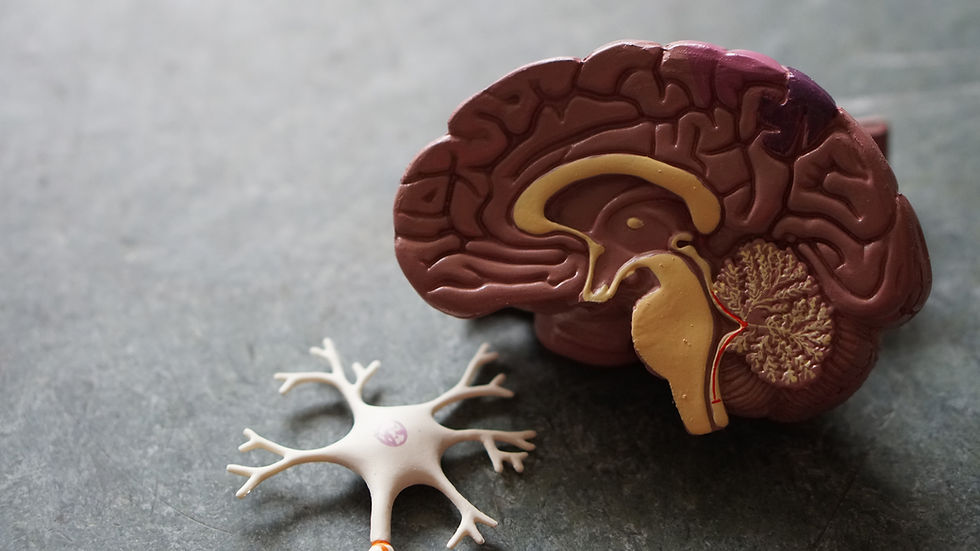In the intricate tapestry of human development, mirror neurons emerge as fascinating players. Discovered in the 1990s, these specialized brain cells have captured the attention of neuroscientists and psychologists alike. Mirror neurons are believed to play a crucial role in our ability to empathize, learn, and imitate behaviors. However, when it comes to children growing up in toxic family environments, the impact of mirror neurons takes on a unique and complex significance on child development.

Understanding Mirror Neurons
Mirror neurons are a class of cells found in the brain that fire both when we perform an action and when we observe someone else performing the same action. They create a neural mirroring effect, allowing us to understand and mimic the intentions, emotions, and motor actions of others. By mirroring the experiences of those around us, these neurons contribute to social learning, emotional understanding, and the development of empathy.
The Impact of Toxic Family Environments
Children are incredibly receptive beings, actively absorbing the sights, sounds, and emotions of their surroundings. In the context of a toxic family environment, where dysfunction, abuse, or neglect prevail, the effects on a child's growth and development can be profound. Mirror neurons, in this context, become an integral part of the child's adaptation to their environment.
Emotional Contagion
Mirror neurons facilitate emotional contagion, enabling children to mirror the emotions displayed by their family members. When exposed to toxic emotions like anger, hostility, or fear, children may unknowingly internalize these negative emotional states, influencing their own emotional regulation and responses.
Impaired Empathy
Empathy, a vital skill for healthy social interactions, can be compromised within toxic family environments. If children witness a lack of empathy or compassion among their family members, their mirror neurons may fail to develop the neural pathways necessary for empathetic responses. As a result, they may struggle to understand and connect with the emotions of others, potentially perpetuating a cycle of emotional disconnect.
Maladaptive Behavior Imitation
Mirror neurons are responsible for imitating actions and behaviors. In toxic family settings, children may observe and replicate negative and dysfunctional behaviors, such as aggression, manipulation, or substance abuse. These imitative actions can hinder the child's personal growth, creating a perpetuation of destructive patterns.
Self-Perception and Self-Worth
Mirror neurons also influence our self-perception and self-worth. In a toxic family environment where children are subjected to constant criticism, belittlement, or neglect, mirror neurons may internalize these negative perceptions, leading to low self-esteem, self-doubt, and an impaired sense of identity.
Breaking the Cycle
While the impact of mirror neurons within toxic family environments can be profound, it is crucial to recognize that they are not determinants of a child's future. Intervention, support, and resilience can help children overcome the challenges they face and foster healthier development.
1. Safe and Nurturing Environments
Creating safe and nurturing environments outside the toxic family setting can provide children with opportunities to build healthier relationships and experience positive emotions. Supportive caregivers, therapy, and access to social networks can aid in reshaping their developmental trajectory.
2. Positive Role Models
Introducing positive role models, mentors, or teachers who exhibit healthy behaviors and promote empathy and compassion can provide children with alternative mirror experiences. Witnessing positive actions and interactions can help reshape their neural mirroring processes.
3. Therapeutic Interventions
Therapeutic interventions, such as play therapy, coaching, counseling, somatic therapy, hypnotherapy, or trauma-focused therapy, can be valuable tools in helping children process and heal from the emotional wounds inflicted by toxic family environments. These interventions can help rewire their mirror neuron networks, facilitating healthier emotional regulation and social interactions.
Mirror neurons offer a profound lens through which we can understand the impact of toxic family environments on childhood growth and development. However, they do not seal the fate of children trapped in such environments. By creating safe and nurturing spaces, providing positive role models, and offering therapeutic interventions, we can support the resilience and growth of these children, ultimately helping them break free from the cycles of toxicity and build brighter futures.

Comments